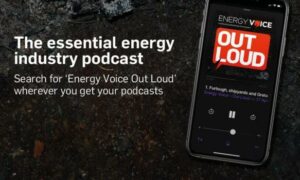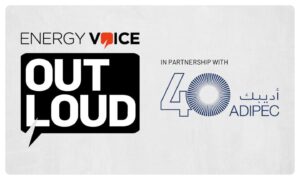
The energy crisis of this year has brought new attention to the “trilemma”, but a mix of new and old resources can be the best way to tackle this.
“The crisis of the last six months may give us further impetus towards the transition than taking us backwards,” Environmental Defense Fund (EDF) senior vice president of energy Mark Brownstein said on the first episode of the new Road to Adipec podcast.
Energy security, Brownstein said, comes from moving away from an over dependence on hydrocarbons and adding new sustainable options – solar, wind, electric vehicles – into the mix.
“It’s a supply crisis, not a demand crisis,” the EDF executive said. In the near term, the world will need incremental supplies to “fill the gap”.
Just as important, though, are “strategies to begin to ratchet down total demand, so we get to a new equilibrium without having to go back to Russian supply”.
One area that is ripe for reconsideration is that of wasting gas. According to the International Energy Agency (IEA), the world currently flares or vents around 200 billion cubic metres of gas.
“We believe a substantial chunk of that 200 bcm can be brought to market in the next 24-36 months,” Brownstein said. “The first place we should be looking is to make better use of the gas we’re pulling out of the ground. It’s the quickest and most economic solution – and candidly it’s the most environmentally sound solution.”
Tackling this problem helps solve the problem of securing additional energy supplies – while also reducing greenhouse gas emissions.
“Reducing our use of fuels is not the same as getting rid of all fossil fuels,” Brownstein said.
Different parts of the world face similar challenges in different ways. Where there are concerns in Europe and North America about higher energy prices, the prospect of actual blackouts remains unlikely.
In sub-Saharan Africa, meanwhile, an estimated 600 million people lack access to reliable electricity. Populations that still rely on burning biomass for food preparation – with all the negative impacts that has on health – will be more focused on securing energy of any sort as an improvement.
“You can’t talk about energy without talking about access and affordability, alongside sustainability,” he said. “Let’s not pretend energy poverty is the result of energy transition.” Rather, Brownstein said, the energy transition offers an opportunity to tackle these longstanding issues of inequality, in a way that relying on hydrocarbons alone has failed to solve.
Access to capital is the universal challenge in the provision of all sorts of energy, the EDF exec said. The discussion should not focus on financing gas power plants alone, but take a holistic view and find the most affordable fit for different challenges.
With European demand pumping up gas prices, and drawing in supplies from around the world, work on renewable resources such as solar looks attractive from all angles of the energy trilemma.
National oil companies account for around two thirds of energy production and have a dual role, of working to provide revenues while also meeting domestic requirements.
“In some parts of the world, in the Middle East, we see national oil companies re-casting themselves as national energy companies … using that oil wealth as a jumping off point for creating a more sustainable energy economy for the future. That’s one of the reasons we’re so excited about being involved with Adipec.”
Listen to the Road to Adipec podcast here.
Recommended for you









